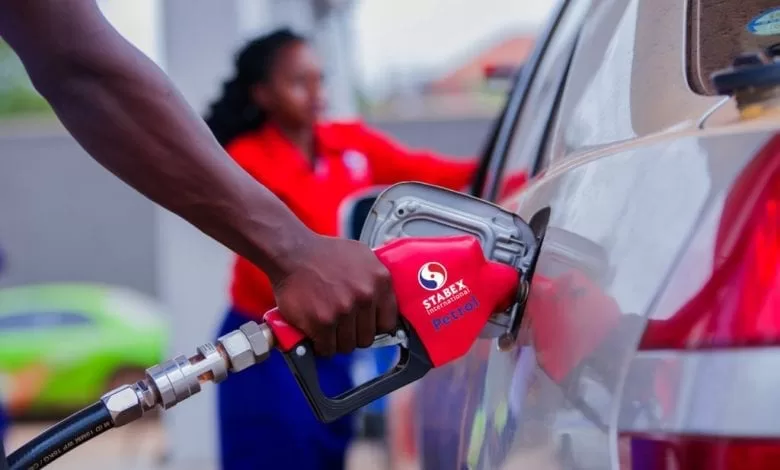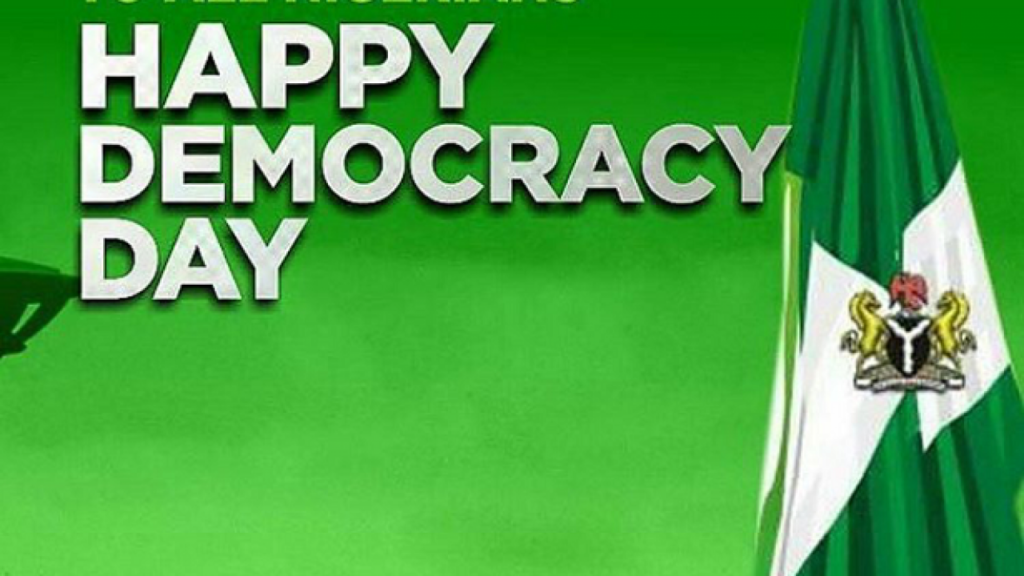Brace yourself for impact, as a pilot would say. There is a way to cope with subsidy removal.
The good news is that Nigeria’s plane isn’t going down. It’s just going through a difficult patch that will pass, with the appropriate policies in place.

For Nigerians, June began with a bang. It heralded the new government’s declaration of the elimination of fuel subsidies.
It is the first time that such removal did not whip up massive protest. A child of destiny, you could call it.
Even though the elimination of fuel subsidy was not scheduled to take effect until July 1, 2023, everyone panicked and hurried to gas stations to fill up.
In that hurry, they ran into the future.
Long lines of persons needing petrol in kegs and vehicles forced a price increases at gas stations, pushing cost of transpiration further north.
Vehemently, again, our dear reader, brace yourself for impact.
What Is Fuel Subsidy
Despite the fact that Nigeria is an oil-producing country, we must import gasoline due to a shortage of refineries.
Importing petrol is expensive, and Nigerians would effectively pay for petrol as if they were in a country that does not produce crude oil.
To mitigate the financial damage that bad leadership serves Nigerians as breakfast, the government pay to subsidise petrol.
This is accomplished by providing money to oil companies to cover the difference between the actual cost of procuring fuel and the amount customers pay at gas stations.
It will be difficult for everyone, including average households, small enterprises, high-net-worth individuals, and major organisations, because everything in Nigeria rallies around petrol, either directly or indirectly.
In times like this, the normal Nigerian would be thinking about how to avoid sapa (hunger), just like everyone else.
Subsidy – Good Or Bad Idea?
As a short-term solution, it seemed sensible to fill the void left by the lack of refineries.
The long-term goal, however, should have been to create operational refineries in order to lessen reliance on imports and facilitate the export of refined petroleum products.
Unfortunately, this objective was not met.
As Nigeria rises from economic challenges, including recessions in 2016 and 2020, the situation is now worse with the Russian/Ukraine War pushing the bars.
Nigeria has increased the government’s burden.
The Dutch sickness, which refers to Nigeria’s reliance on crude oil exports as its primary source of revenue, has contributed to these difficulties.
Also Read: Nigeria’s Crude Oil Dips By Over 1m In 7 Months
The dip in oil production has had a further negative impact on the economy.
Also the mighty debt service consumes a sizable portion of the government’s revenue.
The government has borrowed to fund its activities and fuel subsidy payments, resulting in rising debt.
As a result, the government is presently in a precarious financial situation and is unable to continue paying fuel subsidies.
Nigeria’s situation is like a man, doing more than he could do, in terms of giving, just to show off.
The situation is at its climax for the government and a drastic action must follow.
As we have seen, the price of gasoline has risen, which will have an impact on other prices such as food, power, housing, and everything else we buy.
The good news is that, in the long run, if the government does the right things, the economy and everything will benefit.
How Would It Benefit Nigeria’s Economy?
In an ideal world, funding previously designated for gasoline subsidies would be transferred to critical areas such as education and infrastructure.
It is suggested that the government prioritise investment in the technological industry as well.
This has the potential to accelerate Nigeria’s transition from a developing to a developed economy while also increasing revenue for the broader economy.
By boosting the economy, we may all benefit from a higher standard of living and a higher quality of life.
The problem is that because we have been borrowing to pay for subsidies, there are no savings or funds available for investment.
What Government Targets
The government must educate the public from the bottom to the top about the termination of the fuel subsidy and why it is necessary at this time.
There should be stakeholder forums, radio jingles, text messaging, TV commercials, and newspaper publications.
Maintain transparency and keep the public informed about the process of making life easier for citizens.
Invest heavily in public transit and infrastructure. Buses, taxis, trains, ferries, and other modes of transportation should be available.
Introduce social programmes, such as cash transfers to low-income earners, and subsidise public transit ticket prices.
Although it is difficult, eliminating gasoline subsidies is vital.
Let’s assume you have a nail in your car tyre and instead of removing it and replacing it, you patch it up.
The automobile may be able to move, but the tyre may rupture and cause a huge accident one day.
For far too long, Nigeria has patched this tyre – pushing it near its puncture date.
It is time to mend it so that we can continue on our path to a better Nigeria.
The Talks Before Subsidy Removal
Nigerians shout and grumble over the height of loan that their dear nation is dragging into the future of their babies, more deficits were being recorded in our balance sheet.
The Nigerian government few weeks to the end of Buhari’s administration received $800 million from the World Bank under the National Social Investment Programme.
This amount is equivalent to ₦368 billion. Huge!
Interestingly, yet with doubts in the minds of Nigerians, this money will be part of a package of palliative measures to minimise the negative consequences of the expected withdrawal of the fuel subsidy in June 2023.
Hajiya Zainab Ahmed is the Minister of Finance, Budget, and National Planning and she has a better understanding of the nation’s balance sheet.
But she said a lot on Wednesday after the Federal Executive Council (FEC) meeting at the Presidential Villa in Abuja.
When asked about palliatives the minister replied: “There is a provision that states that all petroleum products must be deregulated 18 months after the PIA goes into effect, which takes us to June 2023.
“This is the first tranche of palliatives that will allow us to provide cash transfers to our society’s most vulnerable members, who have now been registered in a national social register.
“Today, that register contains the names of 10 million households. 10 million households equate to approximately 50 million Nigerians.
“However, we also need to raise more resources to be able to do more than just cash transfers and engage with the various stakeholders.
“The various types of tasks that we have to go beyond just giving cash transfers.
“For example, Labour may be asking for mass transit for its members”.
Truly, her statement explains why labour was warming up for an industrial action.
How To Cope With Fuel Subsidy
“Because prices will rise in the short term, now may not be the time to make large investments such as real estate.
You can wait for the market to stabilise for a bit. Look for possibilities and then invest in them.
Before making a decision, seek the advice of a finance specialist.
Reduce your expenses by creating a budget to track how much you spend and where you may save money.
If you work 9 to 5, request permission to work remotely 2-3 times per week.
Share Rides With Co-workers
In current days when consumers can choose to share rides, this is a perfect business model for car-hailing firms like Uber to implement.
When traveling great distances, take the bus, BRT, or train.
Carpooling with other parents is a terrific option for parents with children.
Also, consider carpooling with coworkers, neighbors, or acquaintances who travel along the same routes. This helps to share gasoline expenditures while also reducing traffic congestion.
If you’re thinking about buying an automobile, go for a fuel-efficient model.
Consider techniques to enhance your revenue. Create an online course, for example, in which you teach people a certain skill that you are excellent at and that is relevant.
Use Public Transport More
Use public transit, such as buses, trams, or trains, which are often less expensive than driving a private vehicle.
Plan your travels and errands in advance.
Make a list of the places you want to visit and the things you want to perform. Combining errands into a single trip saves fuel.
Reduce the need for physical journeys by using online shopping and delivery services for groceries, food, and other products.
Limit Your Budget And Spending Process
Examine your income and expenses to see where you may cut back or save money.
Furthermore, prioritise necessary costs and cut back on unnecessary spending.
Consider starting a side business or looking for other ways to boost your income.
Reduce your use of air conditioning and investigate natural ventilation possibilities.
Insulate your home to keep heat in during the colder months and eliminate the need for extra heating.
Make deliberate steps to preserve water and power, hence lowering associated expenditures.
Consider Fuel-efficient Transportation
The transition to fuel-efficient vehicles or hybrid/electric vehicles will be ineffective.
Maintain correct tire pressure, minimise sudden acceleration or braking, and keep vehicle maintenance up to date to improve driving behaviours. This has the potential to enhance fuel efficiency.
Walk Short Distance
Accept walking as an option for short distances. It not only saves fuel but also has health advantages.
Plan your errands so that you may walk to neighbouring stores, markets, and other attractions.
Consider joining or starting a walking group in your neighborhood to promote walking as a social and healthy activity.
See the Painful part of subsidy removal in the video below.

